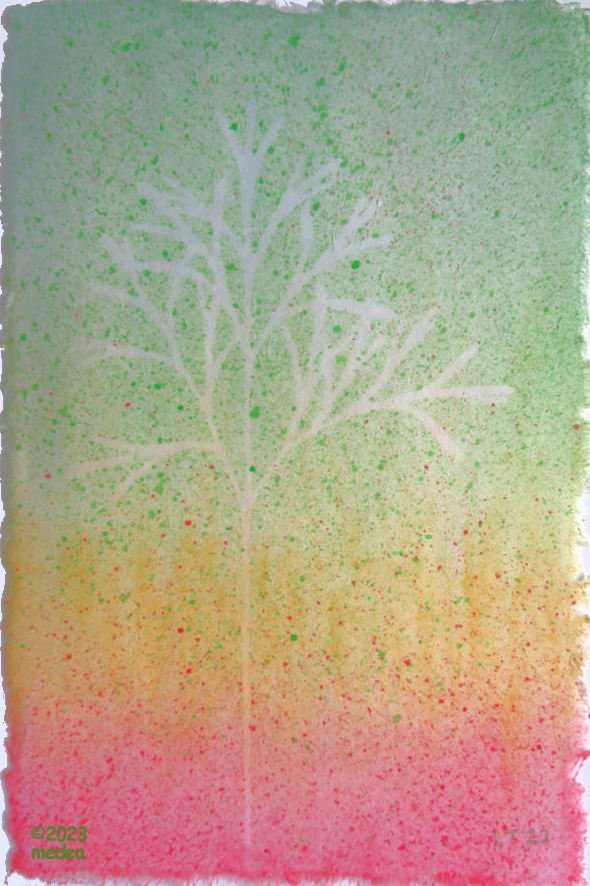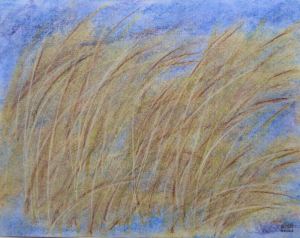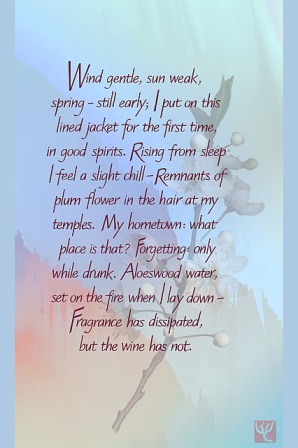
Fireworks on the street
cakes steaming over the stove
new pajamas
grandma’s taro pudding
lion dances and white cabbage
tea and melon seeds
the smell and feel of new banknotes
old Singapore
so long ago

Fireworks on the street
cakes steaming over the stove
new pajamas
grandma’s taro pudding
lion dances and white cabbage
tea and melon seeds
the smell and feel of new banknotes
old Singapore
so long ago

My father, in those sepia-tinted photographs,
looked forward to so much.
After so many disappointments,
he would rise like grass beaten by wind and rain,
then, bent by disease,
and, in the last insult by his own body,
taken by a stroke,
this gentle, unobtrusive man,
always in the background –
life seemed to get the better of him.
He was just a very ordinary man
who remembered all of us
by making meticulous notes of names,
birthdays,
significant events,
and cards given and received.
He did not chronicle the events of his life
nor did he write about himself,
but the things he left
show what he cared about
and how deeply he cared.
April 24, 1921 - October 1, 2007
Oscar Romero was Archbishop of San Salvador when he was assassinated while officiating Mass in the chapel of the Hospital of Divine Providence. Pope Francis canonized Romero as a saint on 14 October 2018.
holy mary mother of god
have mercy
Virgins murmur at street corners
tapping five-inch heels
Officer Christos in a cruiser presses fingers to baton
On #14 the congregation rises for a hymn
gloria
peace to his people on earth
Over the spires of San Salvador the generals sang
glory glory
Rutilio Grande Alfonso Navarro Ernesto Barrera
kneeling at the altar
Choirboys in camouflage raised candles to the chancel
holy holy
“I’d like to suggest to you
that some of the investigations
would lead one to believe
that perhaps…”
sanctus sanctus sanctus dominus
deus sabaoth
“And this could have been
at a very low level of both
competence and motivation
in the context of the issue itself.”
Maria Evangelista draws a red heart on her face
Props a red shoe on the sheet
Pulls a rosary between her breasts
Blows smoke from a cigarette
pray for me a sinner
i have squandered the inheritance of your saints
Margarita opens her door for pious men
Pouring oil she warms her hands
Schubert plays the violin
Raphael reclines on sandalwood
Lilies sway on the mantelpiece
Jasmine wafts from a celadon vase
lamb of god have mercy
grant us peace
the blessing of god almighty the father the son
©Lena Tan, 1993
Quotations from Alexander Haig, U.S. Secretary of State, 1980, during an investigation into the murder of four American nuns in El Salvador. Fathers Grande, Navarro and Barrera were murdered in 1977 and 1978.
From the Wikipedia page on Oscar Romero:
“‘In less than three years, more than fifty priests have been attacked, threatened, calumniated. Six are already martyrs–they were murdered. Some have been tortured and others expelled [from the country]. Nuns have also been persecuted. The archdiocesan radio station and educational institutions that are Catholic or of a Christian inspiration have been attacked, threatened, intimidated, even bombed. Several parish communities have been raided. If all this has happened to persons who are the most evident representatives of the Church, you can guess what has happened to ordinary Christians, to the campesinos, catechists, lay ministers, and to the ecclesial base communities. There have been threats, arrests, tortures, murders, numbering in the hundreds and thousands…. But it is important to note why [the Church] has been persecuted. Not any and every priest has been persecuted, not any and every institution has been attacked. That part of the church has been attacked and persecuted that put itself on the side of the people and went to the people’s defense. Here again we find the same key to understanding the persecution of the church: the poor.’
— Óscar Romero, Speech at the Université catholique de Louvain, Belgium, 2 February 1980″
Also:
“A 2000 article by Tom Gibb, then a correspondent with the Guardian and later with the BBC, attributes the murder to a detective of the Salvadoran National Police named Óscar Pérez Linares, on orders of D’Aubuisson [Roberto D’Aubuisson, Salvadoran politician and death-squad leader, President of the Constituent Assembly from 1982 to 1983]. The article cites an anonymous former death squad member who claimed he had been assigned to guard a house in San Salvador used by a unit of three counter-guerrilla operatives directed by D’Aubuisson. The guard, whom Gibb identified as ‘Jorge,’ purported to have witnessed Linares fraternizing with the group, which was nicknamed the ‘Little Angels,’ and to have heard them praise Linares for the killing. The article furthermore attributes full knowledge of the assassination to the CIA as far back as 1983. The article reports that both Linares and the Little Angels commander, who Jorge identified as ‘El Negro Mario,’ were killed by a CIA-trained Salvadoran special police unit in 1986; the unit had been assigned to investigate the murders. In 1983, U.S. Lt. Col. Oliver North, aide to then-Vice President George H.W. Bush, is alleged to have personally requested the Salvadoran military to ‘remove’ Linares and several others from their service. Three years later they were pursued and extrajudicially killed – Linares after being found in neighboring Guatemala. The article cites another source in the Salvadoran military as saying, ‘they knew far too much to live.'” [Guardian article is here]

A cup of tea, a window seat,
An afternoon dialogue.
The scene opens on a sparse set,
My gaze left behind in rapt posture.
Words like moving pictures pass me;
I play myself in tragedy.
— Are you all alone where you are —
Longing gently touches him.
If I’m not here
where am I?
If I’m not me
who am I?
Vancouver, 1991
Text and artwork ©Lena Tan 1991/2016
The sky is light gray, there is a dampness on the road, a bit of wind but no rain – it is just such a day and the wild plum in the backyard is almost in bloom.

Li Qingzhao: Song to the tune of “Pusaman”
Translation and artwork: Lena Tan, 2006
Li Qingzhao (c.1083-aft.1149) was the daughter of a respected scholar and official in Song dynasty China. Her husband was often traveling on official business, perhaps accounting for the recurrent theme of aloneness in her poetry, although the loneliness of women was a common subject for this form of poetry written to the tunes of popular songs. In 1126, the Song capital fell to northern invaders and the court retreated southward to establish a new capital in Hangzhou. Li’s husband died at this time and she was left on her own to relocate her household.
More images…
More poets…
Translation and artwork: Lena Tan, 2003
Li Bai was born in Central Asia to a family outside the Tang artistocracy. He created a
rebel persona by exaggerating his eccentricities and writing a flamboyant poetry that has been called “strangeness on top of strangeness.” He was never accepted by his contemporaries in the capital, though his prodigious talent got him an appointment in the emperor’s court, from which he was eventually dismissed for frequent transgressions on the social conventions.
More poets…
Translation and artwork: Lena Tan, 2003
(712-770, Tang Dynasty)
Du Fu came from a family of distinguished scholars and officials. In his youth, he showed a talent for poetry and calligraphy. All his life he longed to serve his emperor and country but failed to secure a stable role in officialdom, which consigned his family to a life of relative poverty. He observed the extravagance of the emperor’s court, the suffering of the people, and the ravages of war, and wrote about that in his poetry.
Du Fu is an acknowledged virtuoso in technique and language, master of the perfect couplet while innovative in style and content. Another Tang poet, Yuan Zhen, inscribed on Du Fu’s tomb: “Since there have been poets, there has never been Du Fu’s equal.”
More poets…
Translation and artwork: Lena Tan, 2003
(701-761, Tang Dynasty)
Born into an established family, Wang Wei enjoyed a position in high society, serving successfully in government. He was well-schooled in poetry, calligraphy, music and painting, and was sophisticated and innovative in his art. He became a devout Buddhist and wrote meditative poems of great simplicity and understatement. Yet his work reflected an ongoing discord between his sense of public responsibility and a private desire for renunciation.
More images…
More poets…
This poem by Zhang Ji (張繼 c.800, Tang Dynasty) is a seven-character quatrain, consisting of two pairs of parallel couplets. It has long been regarded as a masterpiece in that genre.
Gusu, now part of the modern city of Suzhou, was the capital of the ancient state of Wu in southern China.
Around 500 BCE, the states of Wu and Yue contended for supremacy. According to the legend, the King of Yue presented the King of Wu with the beautiful Xi Shi. The King of Wu was so beguiled with her that he was unprepared when the King of Yue attacked and defeated him. Part of the melancholy of the poem is the evocation of the well-known legend in the name of the old city.
The first Cold Mountain (Hanshan) Temple was built in the Liang Dynasty (502-557).
These ATCs have been traded but are available as 4″ x 6″ prints.
Mid-autumn festival, sipping osmanthus tea and nibbling on lotus mooncake.
The Song poet Li Qingzhao 李清照 (c.1083-aft.1149) posed a riddle:
Naturally, it ranks first among flowers.
The plum surely is jealous,
The chrysanthemum should be ashamed;
It opens by the painted railing, capping the mid-autumn.自是花中第一流.
梅定妒,
菊應羞,
畫欄開處冠中秋.
(from “Partridge Sky” 鷓鴣天, 暗淡輕黃體性柔)
Another Song poet Su Shi 蘇軾 (1037-1101) raised his wine cup, and, thinking of his brother far away, sang to the full moon:
We can only hope to live long,
And across a thousand li, together cling to its beauty.但願人長久
千里共嬋娟
(from “Prelude to the Water Melody” 水調歌頭, 明月幾時有, written in 1076 )
Translations by Lena Tan